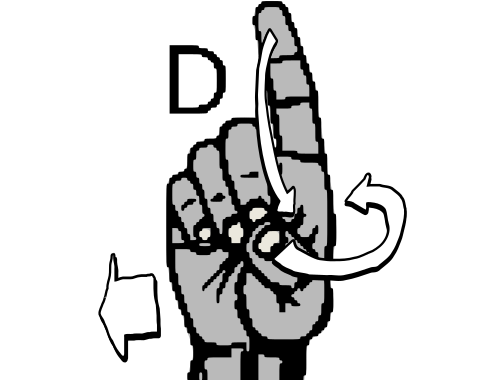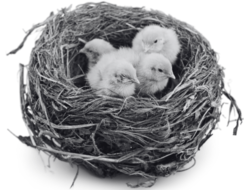Having a disability doesn’t mean not having sexuality, but you’d never know that from the messaging out there. Here’s sex, relationships and bodies information for people with a range of disabilities, from neurodiversity to chronic illness to mobility or cognitive disability. Nothing about us without us: our disability information is almost always written by people with disabilities themselves.
Disability

Highlighted content
I am 17, and I have a 15 year old sister who is Autistic. I also come from an EXTREMELY Catholic family. I never got a sex talk - I straight-up asked my dad what sex meant when I was 9 or 10, and he...
How can I give my sister a good sex education?
- Heather Corinna
- Lisa Laman
There isn’t a one-size-fits-all process for tackling this issue, but here's a little help from one person with Autism to another, so you can figure out some concrete ways of scaling what can feel like an immense social mountain.
- Andrew Gurza
It took a long time for me to come to terms with my singledom, but now that I'm here, I couldn't be happier.
- Andrew Gurza
When your disabled body decides to literally crap out on you, how do you bring sexy back?
- s.e. smith
Disabled people are often nervous when they set out into the world of partnered sex. Because it's such a taboo subject, they may not know where to start, since they've rarely heard people affirming the right to sexual autonomy for disabled people, or providing information about how to have safe, fun, loving, saucy, steamy, great sex while disabled.
- s.e. smith
We all know that consent can be sexy — and also that navigating sexual consent can be tricky. Sometimes, disability makes it more complicated, so it's important to take some time out to talk about that as you explore the world of dating and sexuality through the disability lens.
- s.e. smith
Many people with evident physical impairments — like those that require the use of mobility devices — encounter rude questions from nondisabled people on the regular. Those with chronic illnesses and other impairments that might not always be immediately obvious certainly come in for their share as well. Sometimes it feels like we should be selling tickets to the freak show.
- s.e. smith
If you want to explore various aspects of kink — or whatever you want to call it — there's absolutely nothing wrong with that, and it can be fun and one way to build rich, fulfilling relationships.
- s.e. smith
When we talk about disabled people having awesome sex lives, sometimes something dehumanizing creeps into the mix: Some (usually nondisabled) people profess an "attraction to disability." What they mean is they find disabled bodies — not disabled people — sexually stimulating. That means seeing your body as a sexual object. If that makes the hair on the back of your neck stand up, you're not alone.
- s.e. smith
Sex and sexuality can be tough to navigate no matter what, but it can be more challenging when your brain's wiring is different from that of your partners. It's important to establish from the outset that there's nothing "wrong" with you if you have mental illness, autism, or any number of other developmental, intellectual, or cognitive disabilities. You are who you are, and who you are is great! But it can make things a little snarly sometimes if you miss cues, get overwhelmed by your anxiety, or encounter people who think you're vulnerable and want to take advantage of you.
- s.e. smith
Before getting sexy with other people, it may help to get to know your own body — although it's not required— and a lot of the disabled youth I talk to haven't had the opportunity! They're not sure which sensations they like, how their bodies feel when they're excited, what they definitely don't like, and how to handle the physical mechanics of pleasure. Nondisabled people sometimes assume masturbation is a snap, but for some of us, it can be more challenging. That doesn't mean it's impossible.


